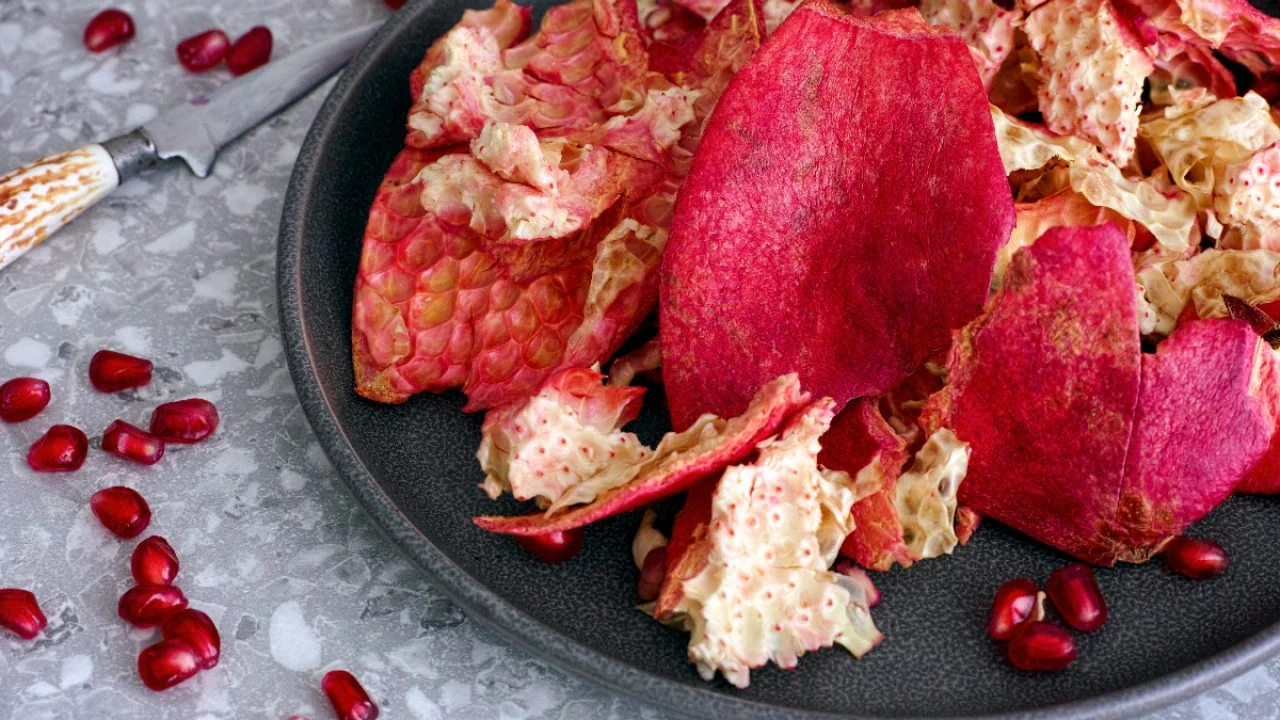9 Amazing Ways to Repurpose Pomegranate Peels in Your Garden
Pomegranate peels are not just waste; they are packed with nutrients and natural compounds that can greatly benefit your garden. Here’s how you can utilize these peels effectively:
1. Natural Fertilizer
Pomegranate peels are rich in potassium, phosphorus, and nitrogen, essential for plant growth.
- How to Use: Dry the peels completely and crush them into a fine powder.
- Application: Mix the powder into your soil or compost. This organic fertilizer will provide a slow-release source of nutrients, enhancing plant health and growth.
2. Compost Booster
Boost your compost pile with pomegranate peels to speed up decomposition.
- How to Use: Chop the peels into smaller pieces.
- Application: Add them to your compost bin with other green (nitrogen-rich) and brown (carbon-rich) materials. They will help accelerate the composting process, resulting in richer compost.
3. Pest Repellent
The antifungal and antibacterial properties of pomegranate peels make them effective against pests.
- How to Use: Boil dried pomegranate peels in water for 10-15 minutes.
- Application: Strain and cool the solution. Spray it onto your plants to deter pests like aphids, ants, and mosquitoes without using harmful chemicals.
4. Soil Conditioner
Enhance soil structure and moisture retention by adding pomegranate peels.
- How to Use: Bury small pieces of pomegranate peels in your garden bed.
- Application: As the peels decompose, they will improve soil texture and moisture retention, making your garden soil more fertile.
5. Natural Rooting Hormone
Encourage root growth in plant cuttings with pomegranate peels.
- How to Use: Blend dried pomegranate peels with water to create a paste.
- Application: Dip the cut ends of your plant cuttings into the paste before planting. This natural rooting hormone can enhance root development.
6. Mulching Material
Use pomegranate peels as mulch to benefit your garden.
- How to Use: Lay peels around the base of your plants.
- Application: This mulch layer will help retain soil moisture, suppress weeds, and provide a slow release of nutrients as it decomposes.
7. Disease Prevention
Prevent diseases in plants with the antifungal properties of pomegranate peels.
- How to Use: Grind dried peels into powder and mix with water.
- Application: Spray this mixture onto plants prone to fungal infections or diseases like mildew and root rot to reduce disease spread.
8. Worm Feed in Vermicomposting
Enhance your vermicomposting process with pomegranate peels.
- How to Use: Chop the peels into small pieces.
- Application: Add them to your worm bin. The worms will consume the peels, converting them into nutrient-rich worm castings.
9. Seed Starter Mix
Incorporate pomegranate peels into your seed-starting mix for added nutrients.
- How to Use: Dry and grind the peels into a fine powder.
- Application: Mix the powder into your seed-starting soil to enrich it with essential minerals, giving seedlings a strong start.
Conclusion
Pomegranate peels offer a sustainable and effective way to enhance your garden. By incorporating them into various aspects of gardening, you can reduce waste and improve plant health. Whether as a natural fertilizer, pest repellent, or compost booster, these peels provide valuable benefits for a thriving garden.

